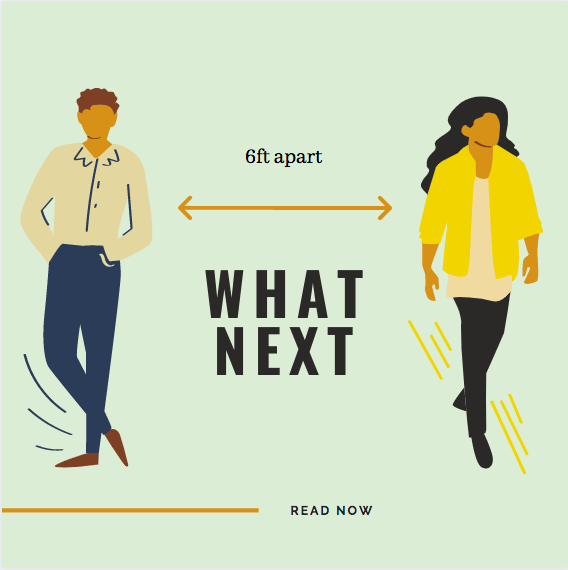Billions of people are in lockdown. Grocery stores have been swept empty. Medical professionals are forced to make the choice between life and death of unfamiliar people. It all sounds like something from a dystopia, like the stories we read to take a break from reality, but what happens when it becomes the reality? How will our world change?
It has already changed the course of some large fundamental arguments. Universal Basic Income, a concept with widely polarising views, has accelerated progress with the United States handing out as much as 1200 dollars to the most disadvantaged parts of society. Worldwide we are essentially seeing a large scale experiment in the limits of working from home with most non-essential businesses and educational institutions facing temporary closure. Conference call giant, Zoom, has seen tremendous growth with its stocks hitting nearly 160 dollars this March.
Politics will also be changed. In a world that requires social distancing, important questions on the proceedings of senates and voting activity are being asked. It is not possible or safe for hundreds of people to be in close contact with each other, so how will large scale voting such as those for presidential elections be held? Big government may become more prevalent, and as seen by the bailout packages in countries like India and the United States – necessary. Policy to get out of the economic slump brought on by the pandemic will be created and a stronger emphasis on domestic supply chains is expected.
Unspoken rules will be questioned. Interest on federal student loans can be frozen, the homeless can be sheltered in government buildings, paid sick leave can be a possibility for all workers. Albeit done in a frenzied manner, and not viable in the long term, it does force society to think about better ways to create more humane systems.
This pandemic while bringing together communities in unconventional ways, also highlights the ugly. The socio-economic fracture will worsen with those at the bottom battling the worst of it – layoffs, homelessness and lack of opportunities due to things as simple as an internet connection. Xenophobia has been aggravated partly because the virus is an invisible enemy, and everyone is looking for someone to blame. Mental health will take a hit, the elderly who are already some of the most secluded in society face even more loneliness.
The most unsettling thing about this pandemic is the uncertainty that surrounds it. When will I be able to go out? Is it safe? If I fall sick will I be able to get the care I need? These are the lasting questions and nobody has definitive answers for them, and that is what is scary.
These are unprecedented events and only time has the answer.
